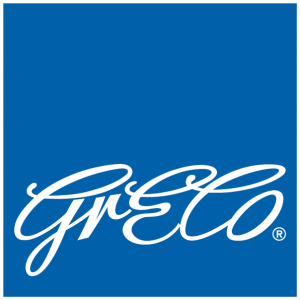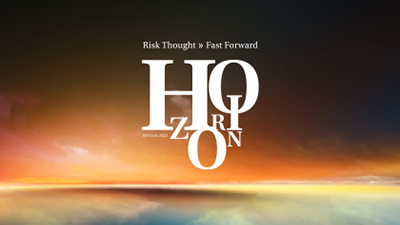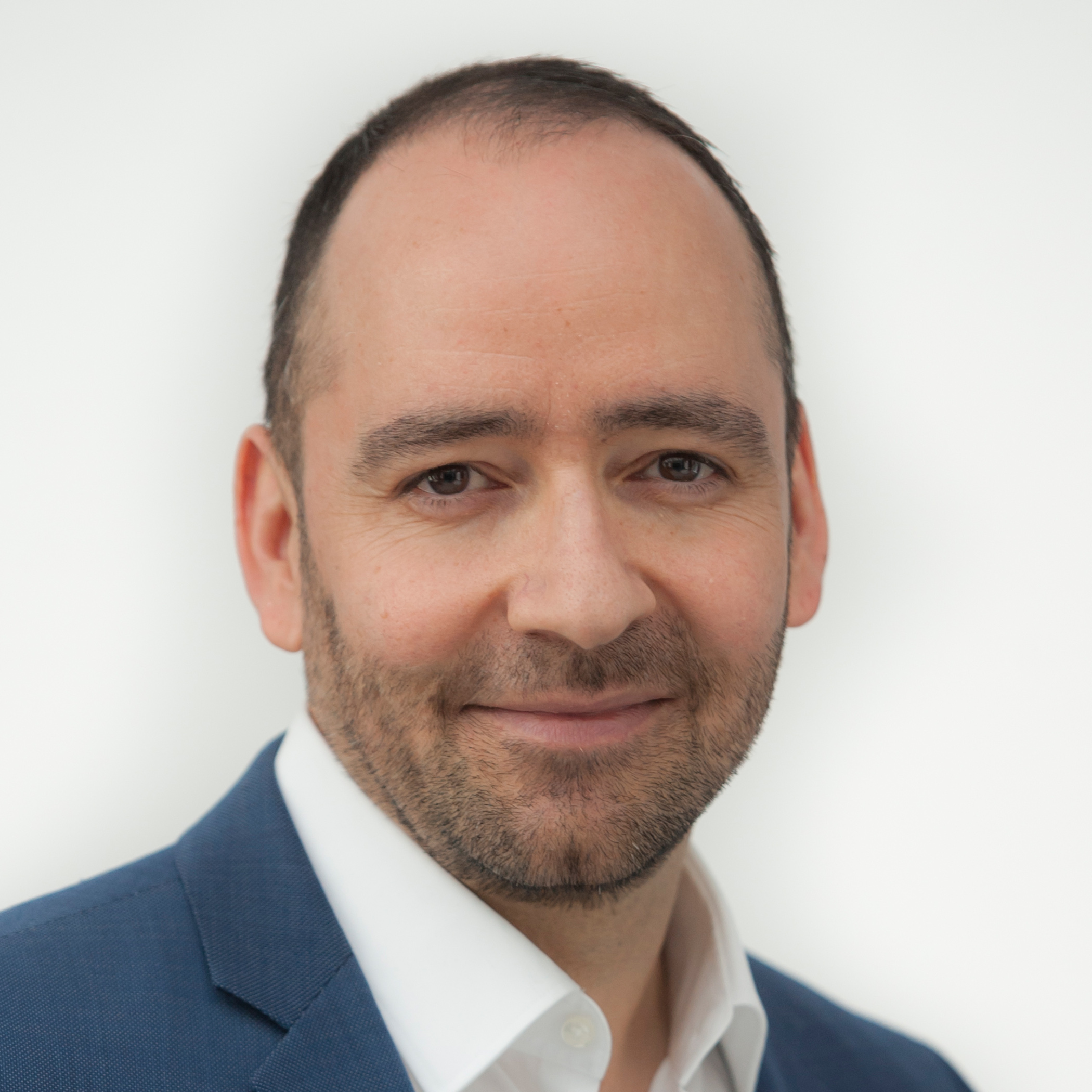Ante Banovac, a member of our Executive Board, shares his thoughts about future risks facing the insurance industry, the state of the insurance market in Serbia, Slovenia and Croatia and the role that risk specialists have in a world full of increasing risks. The interview was originally published in the Svet osiguranja, an insurance specialized publication issued in Croatia, Serbia and Slovenia.
Insurance today is facing a number of challenges posed by the risks of the new age that are constantly increasing. What are the biggest risks today that companies should pay attention to as insurance brokers?
At GrECo we see four mega trends and their consequences as the main risk changers driving a fundamental transformation of our client’s risk landscape. These are the challenging development of our environment, leading to climate risks such as an increasing impact of natural hazards as a result of climate change, but also the reaction of the global industry adapting their business models to reach their sustainability targets. Furthermore, the digital transition leads to great opportunities for innovation with the result, that corporate assets and therefore the risk landscape of a company nowadays is increasingly affected by intangible risks such as cyber or reputational risks.
Another area that keeps our clients busy is the limitations which are arising from our globalized economy. The global pandemic and the current war in Ukraine lead to dramatic impacts on supply chains impacting prices and therefore also endangering our level of welfare. Finally, all industries are more and more struggling with the enormous lack of skilled labour, and this leads to a war for talents and changes in the labour market where employees are more and more dictating the rules.
And what do you see as the biggest challenge for insurers in responding to those risks that companies and citizens face? Are there risks that are in danger of exceeding the capacity of re (insurers), which have been insurable so far? (The issue of cyber risk, supply chain disruption due to the pandemic, and also due to other risks is mentioned …)
The situation for insurers is not easy. The new risks are challenging them and are very difficult to calculate, leading to a rather cautious approach with respect to coverage and limits. For example, capacities in the cyber insurance market are currently very scarce and insurers and reinsurers cannot provide sufficient balance sheet protection for our large corporate clients, where insurance should traditionally be the last line of defence in a corporate risk management strategy.
Another example of their difficult situation is the need to contribute to a carbon-free future. Companies must change their processes and sometimes even business models in order to fulfil their new sustainability targets over time. These measures lead to new risks. To react to those necessities insurers are looking into their ESG agenda and for example blacklisting carbon-heavy industries such as coal, because they must. At the same time, proper solutions helping this industry to manage the challenges of transformation in front of them are somewhat disregarded.
Serbia is generally the least developed when it comes to insurance compared to Croatia and Slovenia. What do you think could and should be better? In which segments should changes be made?
I think the key components in a long process are financial education for younger generations and stable, strong and reliable domestic insurance markets together with a growing overall economy. You see, how insurance is perceived in the mind of citizens is strongly influenced by claims experiences made in the past and the reliability of institutions in general. Changing perception to the positive requires time. Serbia has some very good insurers today. Jointly, constant efforts need to be made to educate insurance takers, both private and corporate, to keep conducting image campaigns and convincing through professional and transparent claims handling. GrECo is a corporate specialist broker. We have been pioneers in developing risk awareness and understanding of insurance as one possible tool for risk mitigation in Central- and Southeast Europe for more than 30 years. Together with our insurer partners, we are continuing to contribute to this development every day.
What type of insurance do you think has a better chance of developing in Serbia, and is not sufficiently represented now?
Next to the classical and established coverages like Property damage and motor insurance lines, we see a rapidly growing need for Health & Benefits solutions. This is mostly connected to the already mentioned war for talent and skilled labour as companies are looking for ways of attracting and retaining employees. Another area which from our point of view is not yet developed enough is all lines of liability including specialty casualty lines. Those require specialist knowledge and proper consultancy, so clients would see their huge benefit. Increasing awareness of liability risks would also contribute to the overall development of the acceptance of risk consulting and advisory in Serbia.
When we talk about the activities of insurance brokers, can you compare these three markets in which you are present? What is the situation, where it is most developed, who uses your services the most in terms of the industry that is most represented in your portfolios?
In all three markets, I’d say that most registered insurance brokers are acting as generalists, offering services in all insurance lines, mostly collecting offers from the insurance market and focusing on product and price comparison, leaving claims handling completely to insurers. Those are competing with insurers and their agents directly, especially in the retail segment, servicing private individuals. A few brokers take it one step further and are also assisting clients with knowledge and expertise during claims handling, but still being generalists. Very few brokers are offering true risk management and specialty advisory with innovative solutions to improve a company’s corporate risk management. Being a strictly corporate & specialty broker, we belong to the latter group and we believe this is where true value is created for corporates. To do this in Slovenia, Croatia and Serbia you need patience in explaining the difference between a pure product comparison and price-driven approach on the one hand side and highly skilled, often very specialized teams on the other.
We are not insurance dealers, but risk advisors. Major industries we specialize in and we are advising are financial institutions, construction, Oil & gas, Power generation and distribution, Food & beverage, Tourism, Transportation & Logistics, Aviation, and Telecommunication. The need for professional risk advisory has developed and grown over the years and we believe it will continue to grow as economies in all three countries continue to grow over the longer term. Recently, the fragility of global supply chains became apparent due to the pandemic. We expect to see certain effects of nearshoring in the future. Countries like Slovenia, Croatia and Serbia have the chance to benefit from this development.
Insurers have recently faced major flood damage, but on the other hand, most assets are still uninsured against such risks. Only 35 per cent of economically relevant climate losses are currently insured in the EU. How to bridge that gap? Will insurance become more expensive precisely because of the growing climate risks?
Climate change represents one of the most critical challenges in the future in general and for insurance companies as Nat Cat risks are clearly on the rise. Because of a rapidly changing exposure arising from climate risks, there are limits to insurability and economic affordability of insurance covers for corporations. Current risk transfer strategies, relying on traditional insurance solutions alone, without adapting their facilities to these changes, will not bridge the gap. While insurers and risk consultants like us are constantly developing new, innovative concepts of coverage, corporations who have not yet done so will still need to think about Nat Cat Management – meaning analysing and understanding their risks properly, then managing, i.e., mitigating those risks technically. In the longer run, we believe those whole industries will have to transform their business models, factories, and supply chains to increase their resilience and adapt to climate change. Therefore, also our business models are transforming as we are increasingly becoming risk specialists helping our clients to thrive in a changing world.
Although insurance companies have shown great resilience in volatile times over the past two years, how will the current geopolitical instability still affect the work of insurers? And in what way? How much do you think all this geopolitical tension will disrupt general stability, the economy, and finances in 2022 when it comes to this region (Adriatic)?
The insurance industry is one of the most resilient industries and will continue to be one. The consequences of geopolitical instability in the insurance sector that we have seen so far relate to the revocation of coverage of international insurance programmes in Russia because of imposed sanctions, but also in Ukraine. Further, after many years of ultra-loose interest policies of the European Central Bank, inflation has now manifested itself in Europe while economies are not really growing significantly. We are looking at stagflation. Inflation will for instance lead to higher unpredictability of losses as higher replacement costs can be expected, but it is difficult to predict upfront how much higher. The ongoing instability of supply chains also affects replacement times, adding another element of uncertainty. So, predominantly the work of insurers, but especially professional risk advisors and brokers is affected in the way that an even higher level of diligence needs to be applied when consulting clients to safeguard them from such significant, unexpected losses. The ones best technically skilled and prepared to provide professional risk management and advisory will even benefit.
When it comes to the Adriatic region, I believe the same principle of increased diligence applies. It is difficult to say how current geopolitical tensions will translate to this region during the rest of the year and look further ahead, but I hope that we will see a general trend of de-escalation. Economic interdependencies between nations are significant and it is hard to imagine that further escalation would do any good, economically and also from a civil and social perspective for the people in the region.
However, challenging times have always also been phases of opportunity to than in calmer times innovate, adapt and improve. I am very happy to see that corporations, including insurers, became more agile, by showing efforts towards necessary transformation and adaption to this constant crisis. The insurance industry is, thankfully, wide awake and moving ahead.
Although the Croatian insurance sector has so far proved to be relatively stable during the corona crisis, could the effect of the crisis on insurance companies occur with a certain time lag?
That depends on whether we will see new, again significantly more dangerous variants of the virus or not. If yes, it is fair to assume that protective measures like further lockdowns will fuel the current stagflation and make another serious dent in the Croatian economy. This may then also influence the results of insurers. If not, I’m quite positive that such a scenario will not occur.
How should risk monitoring be approached in these unstable times (pandemic, war, disturbed international relations, pronounced climate change)?
As I stated already in the beginning, from my point of view it is most important to include a proper risk prognosis within a company´s risk management process. This means, that forward-looking companies adapt early to uncertainty by constantly applying methods for assessing their business model and their supply chains, checking vulnerabilities and potential impacts. The risk management department must be aware of these changes at the earliest possible stage, to anticipate the possible impact on their specific risk landscape and develop appropriate treatment strategies. Therefore, it is now more than ever of utmost importance that risk advisors and insurers are finally much more included in the clients’ strategic planning. We are increasingly rendering such services and we see more and more clients understanding and appreciating this. This is a good trend.
Croatia is intensively preparing for the introduction of the euro, on January 1, 2023? How will this affect the insurance industry?
Yes, after a long process of preparation and fulfilment of EU requirements Croatia will be taking this major step, which I personally welcome. In the best scenario, this will contribute to increasing foreign investment which in turn could create additional value and increase the total amount of economic assets in Croatia, leading to increased demand for insurance. The pure change from HRK to EUR itself will have no major impact on insurers. In fact, the HRK has been linked to the EUR for decades now. Many major economic transactions in the country have effectively been executed in EUR. It remains to be seen whether insurers will try to use the currency change for (unjustified) price increases. However, the insurance industry is a competitive market with sufficient choices for clients, so I believe this risk shouldn’t be too pronounced.
Croatia has a relatively developed insurance market. Where is insurance in Croatia most developed in comparison to the region? Where does the market in Croatia still need to catch up with the more developed countries in Europe?
Interesting question. Yes, I would agree that Croatia’s insurance market is generally relatively well developed when comparing it to other economies in the region, but there is not a huge difference. In fact, in the Adriatic region, the Slovenian market seems to be the most advanced. This is also reflected in the per-capita expenditure for insurance in general which is highest in Slovenia. In general, we see well-established Lines of Business and really good products, especially in Property and Business Interruption, of course, motor insurance, but also general liability coverages and to a certain extent in Health & Benefits across the region.
Unfortunately, and this is the major difference to more mature western economies, the focus for many companies seems to still rather be on basic protection of assets, based on a Casco mentality translating into possibly no or low deductibles. This shows that understanding of risk- and insurance management is still on a level which offers potential for improvement. This is where we need to catch up. However, this is changing for the better. The understanding of benefits and the value of professional risk management is increasing among Croatian corporations and in fact, there are some very mature companies in this respect we service in already for many years. Those companies are blazing the trail for others and the number will increase.
We observe that the understanding of risk and risk management today correlates with the size of the business rather than with any specific country in the region. The more mid-sized companies learn how to analyse and calculate all their business risks – hence, knowing their total cost of risk (TCOR), the more we will see purchasing behaviour moving closer to more developed western European insurance takers. At GrECo, we are passionate about helping companies increase their awareness of a holistic approach to risk.
GrECo recently acquired MAI CEE. What exactly will that acquisition bring you?
We like to see this transaction rather as joining forces than an acquisition. This is a strategic investment into a joint future. Unlike private equity or other financial investors, our shareholders are thinking long-term and our full focus is on servicing our clients, being a trusted and loyal partner to them offering first-class specialist solutions. After thirty years of dedicated work, GrECo is the leading independent insurance broker & risk advisor in Central Eastern and South Eastern Europe today. This region is what we call our home territory. We are constantly striving to improve and strengthen our leading position by offering talented people from the region a superb platform to develop and grow. MAI is also an independent broker, traditionally rooted in CEE and SEE, just like us.
Also, MAI is home to many incredibly talented and motivated people. I know this first-hand, as I have been deeply involved in making this transaction happen. Together we will be expanding and improving the portfolio of our professional services for our clients. MAI brings, among many other things, superb expertise in servicing international business, first-class international network affiliations and strong Health & Benefits and HR advisory into the Group. We are proud that MAI has chosen to shape the future of risk advisory in Eastern Europe together with us.
Until recently, you were at the helm of GrECo nova, an international network of brokers. Who is gathered in that network and what is its basic role?
GrECo nova is is our global specialist insurance broking network which provides our clients with decisive benefits in all their global ventures. What we do here is ensure GrECo’s quality of service for our multinational clients worldwide. We are having a wide range of long-standing partnerships with other leading independent international brokers in their parts of the world. Under our network GrECo nova, we foster active collaboration of insurance experts who are sharing our culture and values. As the international broker landscape is dynamic, we work with them on a non-exclusive basis, constantly monitoring the quality of services via a sophisticated process. We go the extra mile and have a team that is travelling extensively meeting partners in person around the globe. This way we build trust beyond the usual level and our clients can feel this in the international servicing we put together for them every day.
How much can a broker actually contribute to a company in terms of choosing the right policy and achieving the best price?
The broker is the client’s advocate and expert. He represents the client in front of the insurance market. If the client understands the value of a broker, then the broker is selected carefully, maybe in a broker tender, and appointed exclusively. The broker speaks thoroughly with the client in the analysis phase, gaining a full understanding of all aspects of the risks the client is facing and forming a risk mitigation strategy. Then, the professional broker and risk advisor – not only the insurance dealer as described previously – can engage in a serious process of what we call marketing the risk, or broking. He can approach all insurers, locally and if needed internationally, making it clear that he is appointed exclusively, and the negotiation is about the best possible terms for the risk coverage at the best possible price for his client. This very often means designing the coverage instead of selecting an existing insurance product. The outcome for the client in such cooperation is usually very good. The value of the cooperation between client and broker is then periodically assessed, say once a year, or every three years.
This still happens too rarely in South-eastern Europe, unfortunately. What we often see is that companies appoint multiple brokers, very often not engaging in a risk dialogue before. They think the more brokers they appoint, the better the result will be because there is a higher probability that someone will bring the best price to them. However, the opposite is the case. This is very important to understand: when multiple brokers are appointed, then the brokers who are supposed to be the clients’ advocates and experts are having a difficult task. All those brokers go to the different available insurers. The insurers then have the difficulty of not knowing which broker will be the one whose offer will be selected by the client and hence, usually settle on one offer and send it to all the brokers to maintain fair competition. A deeper conversation about the risk between broker and insurer is often neglected and the risk is not marketed in the best way. The outcome is that, while the offer may be cheaper, it may often also be lacking fundamental aspects of coverage and is hence not the best possible solution for the client. Although not in anyone’s interest, the broker in this case in effect becomes an agent of the insurers, an insurance product dealer. This can seriously harm the client in case of a major claim when the client then finds out what he has bought.
So, the right broker, appointed exclusively, can bring enormous value to the client when engaging in a risk dialogue first, setting the right risk mitigation and insurance strategy, before approaching insurance markets. Then, marketing the risk as the exclusively appointed broker can make all the difference.
GrECo is a family business, does it give it any advantages over other brokers that are mostly owned by funds?
I believe yes. At first sight, it might seem that for a client it does not matter who is the owner of a broker. But, what does matter is the people performing services for the client. Now, there is a saying that when you care about your people then they will take care of your clients with all their hearts. I believe this to be true and we are offering a lot to our teams.
The first is stability. GrECo has a long tradition of sticking closely to its people, especially during difficult times and providing them with a very stable business environment. For example, during the pandemic, there were no layoffs and no salary cuts at GrECo.
Second, continuity at the management level. We are a hands-on, flat organisation and management is very much approachable to everybody, decisions can be made quickly and without complicated processes. Also, management is carefully selected, and there for the long-term. There is no hire-and-fire mentality. This helps us to set a strategy, pursue it and establish much deeper trust with our people. In our daily work, we don’t need to focus on some financial investors’ or stock market analysts’ expectations. Our only focus is on our client’s and people’s needs. We believe that this is more attractive to skilled employees and talented young people than working for PE-backed brokers who are strongly EBIT-focused and interested to resell the company after a determined period. While we are a very successful company, those owners are in the investment banking business, not in the corporate insurance broking business. We are. And people, as well as our clients, can feel this.
You recently became a member of the Executive Board of GrECo Holding. Where did you come from in insurance and among insurance brokers, how did your career develop and what do you think brought you to that high position?
Yes. And I am very grateful that our supervisory board and our shareholders are placing so much trust in me. I started my career in 1997 in Germany as an apprentice, working for one of the major German insurers. I went through all departments from property-, motor-, liability-, and health- to life insurance and claims and enjoyed a very good, classical insurance education. I went into sales and client servicing after this and learned what it means to understand and satisfy clients’ needs while running my own brokerage company. During this time, I also studied insurance management and economics in Munich and attained my bachelor’s degree. I continued my professional education at the Chartered Insurance Institute in London and became a Fellow of the CII. Finally, I completed my studies with an MBA in General Management in the UK. I joined GrECo in 2014 and had the chance to contribute to our Group’s international development, always putting people first, working hard and (hopefully) smart. I guess when you love what you do this is visible to others and can be inspiring.
Related Insights
Pillar of Our Strategy Is Specialisation – Interview With Georg Winter
Georg Winter offers some insights into his vision for GrECo. Interview was originally published in Lockton Global Partners Magazine.
‘Our only focus is on our client’s and people’s needs’
Ante Banovac shares his thoughts about future risks facing the insurance industry and the state of the insurance market in Serbia, Slovenia and Croatia
How bad was drought this year in your region and how much insurance would help to protect against losses?
Such a big drought leads to many negative consequences in many industries, especially in agriculture, energy, logistics, and forestry.









